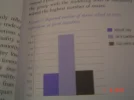Freeman's claim is based on a false premise, we aren't using the Capitalist system here in the US. Instead we've been using the system you advocate, one that punishes achievement and rewards failure. As I said, that system is perverse, it encourages those at the bottom to remain at the bottom, lest they be punished by upward mobility. Those in the middle are punished for their achievements and watch as their hard earned income goes to those at the bottom. Those at the top take advantage of the fact that government is not barred from interfering in the economy, so while they as a group bear the brunt of the punishment known as Progressive Taxation, a select few are able to use their wealth to foster political connections that result in the Cronyism your perverse system allows.
It is the system you advocate that creates a widening gap in wealth and it's the system you advocate that allows Cronyism to flourish.
Tax rates are lower but the rest is nonsense. We have more regulations now than in any time in history, tens of thousands of new regulations are passed every single year, over 44,000 last year alone. Lowering welfare safety nets? Spending on the welfare state has exploded to the point where it consumes nearly 75% of our entire national budget every year, and that percentage is rising annually. And the US government has been busy nationalizing, not privatizing, businesses, such as AIG in the wake of the financial crisis.
Your information is inaccurate:
In 2009, this top 0.1 percent filed 137,982 tax returns, reporting 7.8 percent of all adjusted gross income earned and paying approximately 17.1 percent of the nation's federal individual income taxes. - TaxFoundation
Again, false...
Additionally, these groups are not static. There is a great deal of income mobility between quintiles, large numbers of people move to adjacent brackets in both directions while a relatively small number rocket to the top or plummet to the bottom.
Had government gotten out of the way, rather than deficit spending for bailouts and stimulus, the recovery would have been swift and strong.
Strawman... Nobody claims that inequality causes efficiency.
Strawman... Nobody has claimed that rewarding only those at the top improves economic performance. In fact, everyone is being "rewarded", not just those at the top. Those at the top do see their incomes increase faster than the rest because they are able to escape the punitive Progressive Taxation system through Capital Gains investments while the overwhelming majority of American cannot. If we abolished the medieval system of Progressive taxation and went to a flat tax rate of, lets say 15%, both economic activity and income gains would skyrocket.
I'm really not interested in reading any more of Mr. Freeman's thoughts on the subject, he isn't here to answer my questions or responds to the points I make, but you are.... So, without referring me to Freeman or offering up some specious statistical claims, I'd appreciate if you could explain your claim that income inequality causes someone to lose their incentive to earn using the following scenario:
You make X amount of income per year and it goes up by a small % per year.
Your neighbor currently also earns X but his income is increasing at a higher % rate.
At what percentage rate does your neighbor's increased income cause you lose your incentive to work?25%? 50%? 150%? 300%?
Why does this income inequality with your neighbor cause you to lose your incentive to work?




